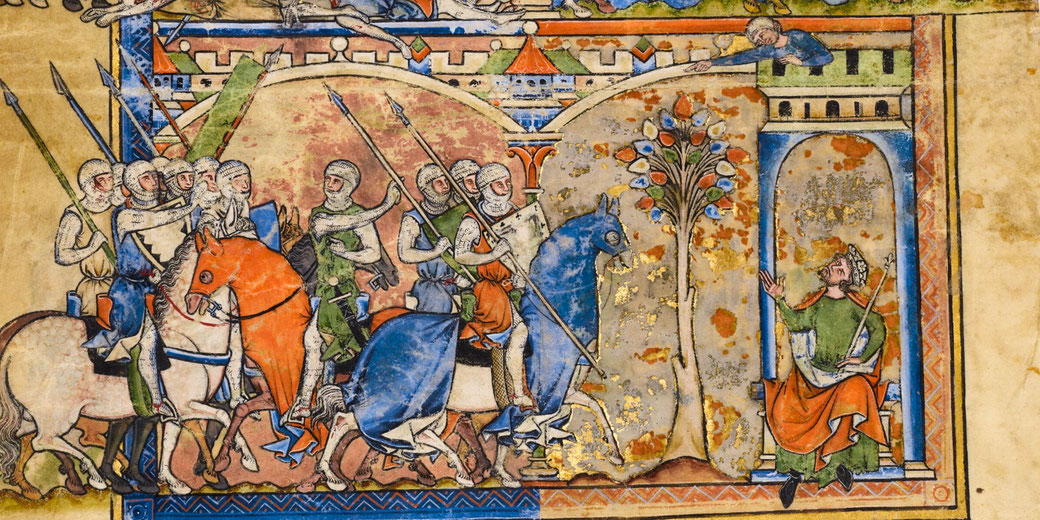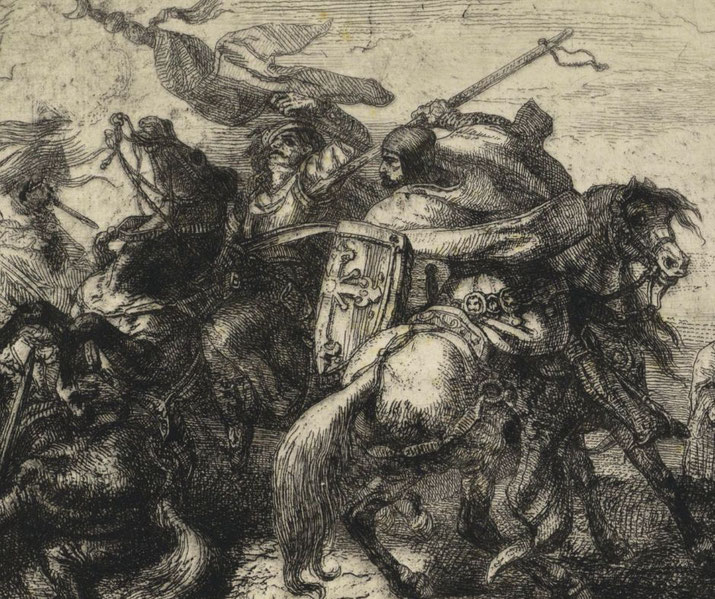How the Crusades changed Europe forever

The Crusades are usually remembered as a brutal series of invasions during the Middle Ages. What is often forgotten are the impacts it had on the people involved.
These religiously charged military campaigns, spanning two centuries from 1095 to 1291, were more than a clash of faiths.
They were a turning point that catalyzed the transformation of a fragmented, feudal Europe into the powerful, interconnected continent it is today.
But how did the cry for a holy war sparked in the heart of France echo through the annals of time to shape the very core of European society?
What ripple effects did these armed pilgrimages have on Europe's socio-political landscape, its economy, and its cultural perceptions?
And how did the Crusades - a series of violent confrontations - unintentionally seed the Renaissance and the Age of Exploration?
The Social Impact of the Crusades
The Crusades marked a significant turning point in the social dynamics of Europe.
Before the Crusades, Europe was largely fragmented, with isolated feudal societies and localized conflicts.
The call for Crusades by Pope Urban II in Clermont, France, 1095, rallied the aristocracy and peasantry alike.
For the first time in centuries, Europe was united under a common cause: to regain control of the sacred city of Jerusalem.
The movement altered the status quo of feudal society. Many younger sons of nobility, who otherwise had limited opportunities due to primogeniture laws, saw the Crusades as a chance for glory and wealth.
This outflow of nobles and knights left a vacuum in the societal hierarchy which was filled by the growing merchant and artisan classes.
Furthermore, the Crusades led to a more interconnected world for Europe.
Through interactions with the Islamic world, Europeans were exposed to different ideas, cultures, technologies, and goods.
This broadening of horizons brought about significant changes in European society.

The Crusades and Trade
The economic impact of the Crusades was transformative. As Crusaders traveled through the Eastern Mediterranean, they encountered goods and commodities previously unknown or scarce in Europe, such as spices, silk, and precious stones. The desire for these goods back home spurred an increase in trade between the East and West.
Italian city-states like Genoa, Venice, and Pisa took advantage of their strategic locations and emerged as powerful maritime republics.
They established colonies and trade routes across the Mediterranean, acting as intermediaries between the East and Europe, amassing considerable wealth and influence in the process.
These economic changes paved the way for the growth of towns and the expansion of the mercantile class, which would later become vital for the advent of the Renaissance and the Age of Discovery.
Political Reverberations
The Crusades also had profound political effects on Europe. Monarchs leveraged the religious fervor of the Crusades to consolidate power, often suppressing local nobles under the guise of raising funds and troops for the Holy Land.
The monarchies of France and England were significantly strengthened during this period.
In the Holy Roman Empire, although power remained more distributed, the Crusades similarly led to a consolidation of authority and encouraged the rise of stronger central states.
The Church also witnessed an increase in its political clout, as it was instrumental in rallying and organizing the Crusades.
For a time, the papacy emerged as a formidable force in European politics, sometimes overshadowing secular rulers.
Knowledge and Cultural Exchange
In addition to these social, economic, and political transformations, the Crusades were a conduit for a massive exchange of knowledge.
Europe re-encountered the preserved wisdom of the ancient Greeks and Romans through contact with the Islamic world.
The Crusaders' exposure to Islamic culture, with its advanced science, medicine, philosophy, and art, played a significant role in revitalizing intellectual life in Europe.
This influx of knowledge was instrumental in sparking the Renaissance and led to major advancements in various fields, from astronomy to medicine, from art to architecture.
While the Crusades were driven by religious zeal and often marred by violence, their unintended consequences significantly reshaped Europe.
The Crusades triggered shifts in social hierarchies, expanded trade networks, fueled the centralization of power, and facilitated an unprecedented exchange of knowledge and ideas.
These changes laid the groundwork for the rise of Europe as a dominant power in subsequent centuries, marking the Crusades as a pivotal epoch in the continent's history.
What do you need help with?
Download ready-to-use digital learning resources
Copyright © History Skills 2014-2025.
Contact via email
With the exception of links to external sites, some historical sources and extracts from specific publications, all content on this website is copyrighted by History Skills. This content may not be copied, republished or redistributed without written permission from the website creator. Please use the Contact page to obtain relevant permission.





